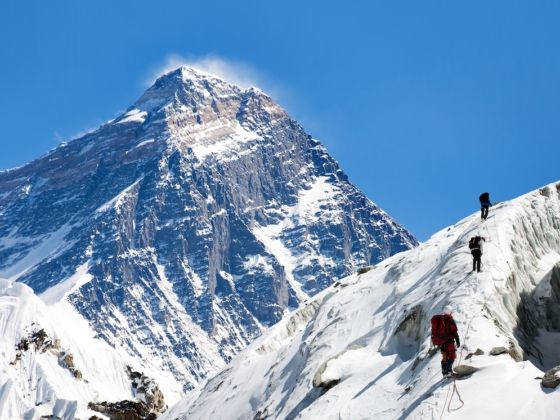Mount Everest has made headlines this season for its deadly traffic jams at the top, due to too many climbers attempting to scale and descend the peak at once — on May 22 alone, there were 200 climbers attempting to reach the summit. May is the most favorable time of the year to climb the highest mountain in the world, and it’s also the busiest.


This climbing season, Nepal issued 381 permits for Everest and it was the deadliest season in the past four years, reported Reuters.
To prevent fatalities linked to a crowded summit and/or inexperienced climbers, Nepal has decided to implement strict rules for those wanting to obtain a climbing permit for Everest.
To obtain an Everest permit, climbers must now have prior experience climbing at least one Nepalese peak over 21,000 feet. They must also submit a certificate of good health and physical fitness, and travel with a trained Nepalese guide. Nothing too out of the ordinary for people attempting to climb a 21,325-foot peak.
Kami Rita, a Nepalese mountain climber and sherpa, has climbed the tallest mountain in the world a record 24 times — and even more impressively, twice in one week this past May. That’s the guy you want taking you to the top safely.
The large number of climbers without any training is also responsible for the sad state of Mount Everest. Last March, China enacted strict measures to prevent waste buildup on the mountain. A BBC report drawn from a statement by the Tibetan authorities revealed that three clean-up operations in spring 2018 resulted in the collection of eight tons of waste, including mountaineering equipment left behind by climbers and a whole lot of crap.
The base camp on the Chinese side of Everest is now officially closed to visitors who don’t have the proper climbing permits (those are now limited to 300 per year). And, according to an announcement by Ci Luo, director of the Chinese Mountaineering Association, reported by Fodor’s Travel, climbers will now be required to carry all of their own waste off the mountain — including their own feces.